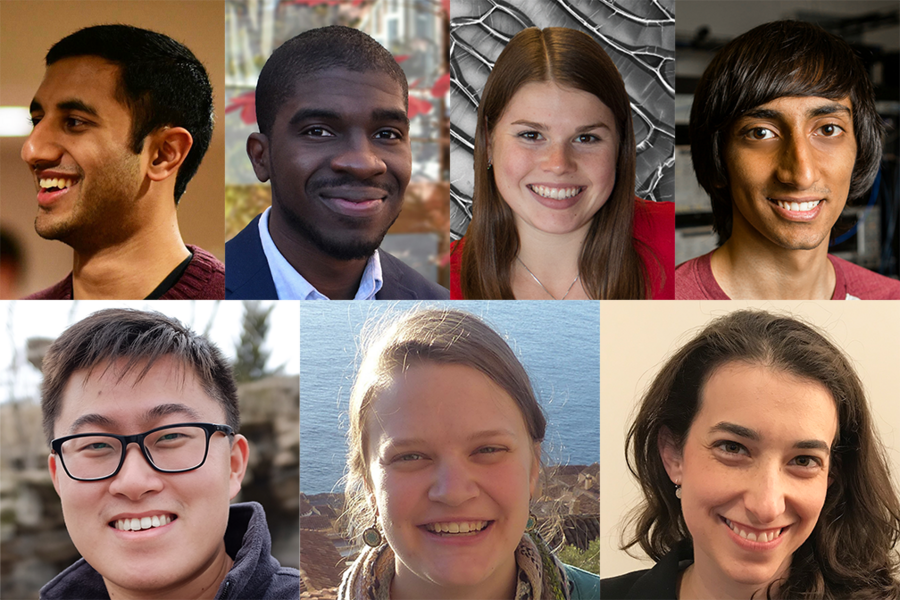Seven MIT graduate students have been awarded 2018 National Defense Science and Engineering Graduate (NDSEG) Fellowships. They are among 69 fellows nationwide offered the highly competitive awards.
NDSEG Fellowships last for up to three years, covering full tuition and mandatory fees. Fellows receive a monthly stipend of $3,200 and a yearly medical insurance stipend.
Fellows are selected by the Air Force Office of Scientific Research, the Army Research Office and the Office of Naval Research. This year's NDSEG Fellows are:
- Eeshan Chetan Bhatt of the MIT/WHOI Joint Program in Oceanography and Applied Ocean Science and Engineering and the Department of Mechanical Engineering, funded by the Office of Naval Research;
- Frederick Daso of the necstlab and the Department of Aeronautics and Astronautics, funded by the Office of Naval Research;
- Ashley L. Kaiser of the necstlab and the Department of Materials Science and Engineering, funded by the Air Force Office of Scientific Research;
- Bharath Kannan of the Engineering Quantum Systems group and the Department of Electrical Engineering and Computer Science, funded by the Office of Naval Research;
- Peter Yucheng Lu of the Photonics and Modern Electro-Magnetics Group and the Department of Physics, funded by the Army Research Office;
- Molly Parsons of the Laboratory for Computational Biology and Biophysics and the Department of Biological Engineering, funded by the Office of Naval Research; and
- Sarah Schwartz of the Fournier Lab and the Department of Biology, funded by the Army Research Office.
“My experience as a 2016 Summer Scholar truly launched my career at MIT even before I returned for graduate school, and it allowed me the key opportunity to pursue and publish my research at a fast pace,” says Kaiser, who worked with Postdoc Itai Y. Stein to create predictable patterns from unpredictable carbon nanotubes. “I'm very honored and excited to receive this fellowship, as it will support my research goals to develop enhanced nanocomposite technology during my PhD.”
“Winning this award was a culmination of two things: my growing passion for structural analysis as a freshman entering MIT, and Professor [Brian] Wardle's willingness to take on a freshman UROP into his lab group,” adds Daso, whose current research focuses on applying novel curing techniques to process thermoplastic composite materials and reducing or eliminating process-driven deformations during the cure cycle for resin impregnated fabrics. “With Professor Wardle's guidance and support, I was able to cultivate my interests in composite research and focus on getting into graduate school. Winning the award in such a competitive year is a testament to the future impact my work will have in the field of composite materials.”
Begun in 1989, NDSEG has awarded nearly 3,600 fellowships to U.S. citizens and nationals who pursue a doctoral degree in one of 15 supported disciplines at a U.S. institution. The NDSEG Fellowship is sponsored by the Air Force Office of Scientific Research, the Army Research Office, and the Office of Naval Research under the Office of the Assistant Secretary of Defense for Research and Engineering.






